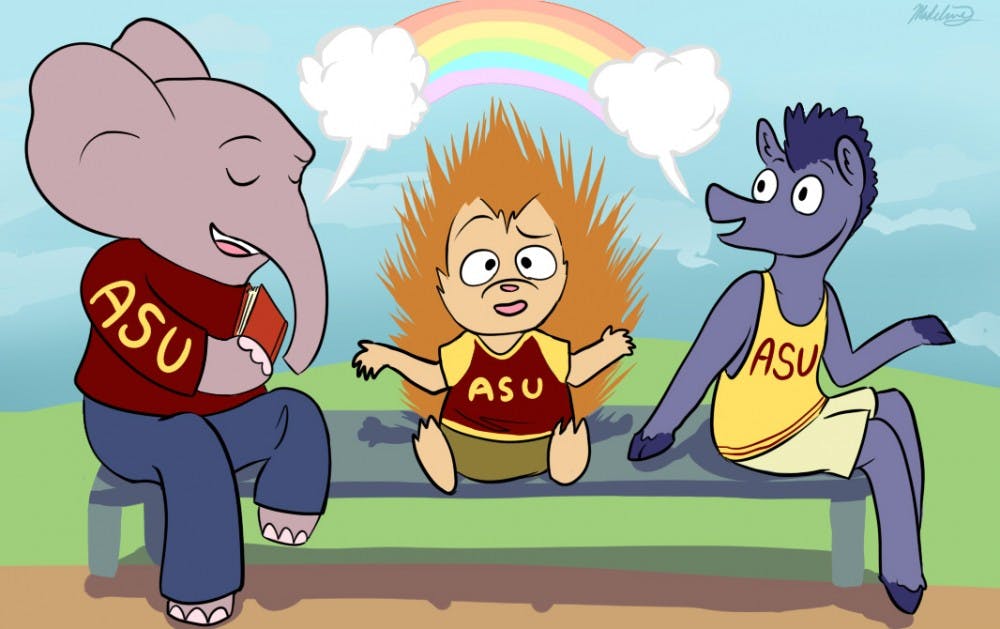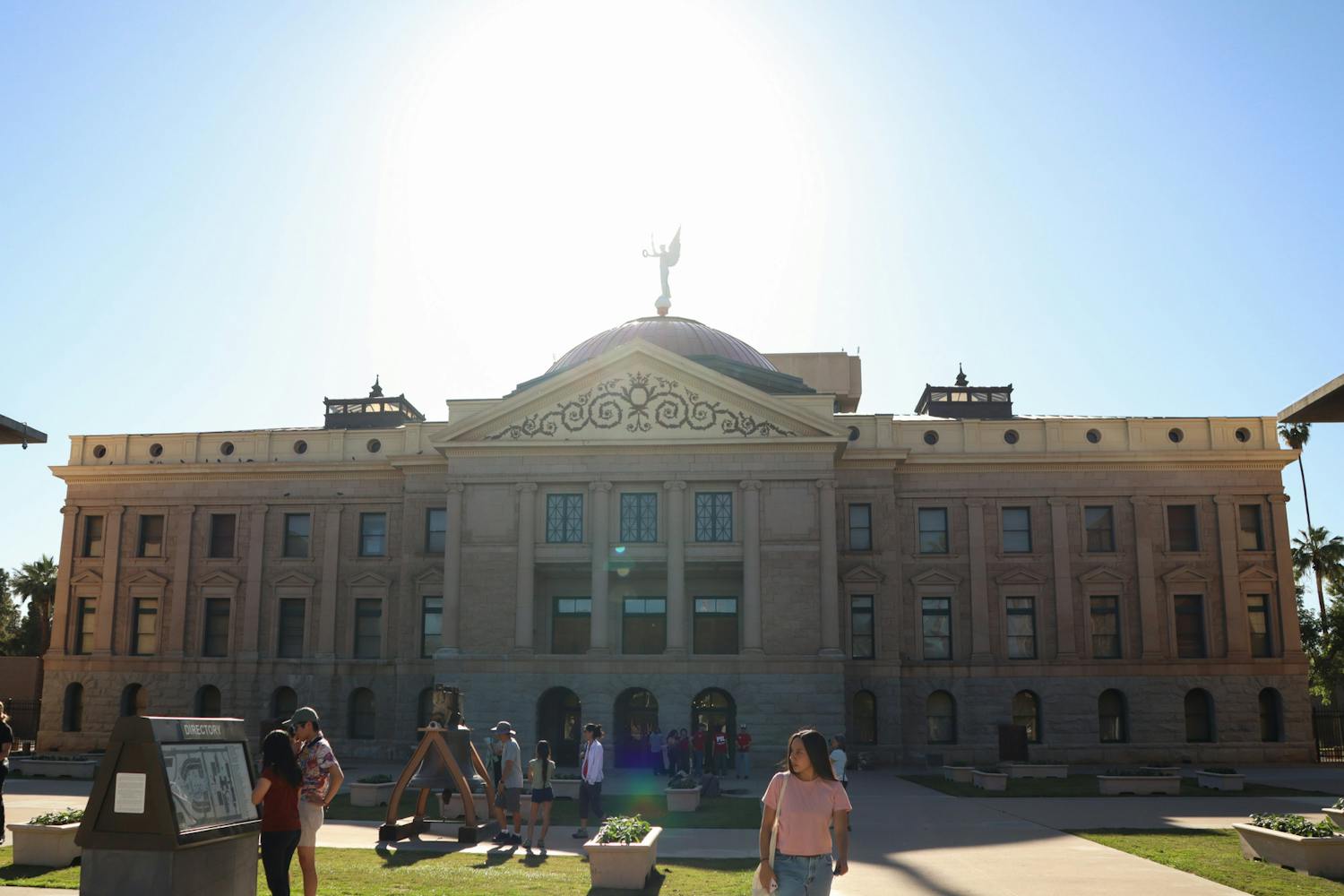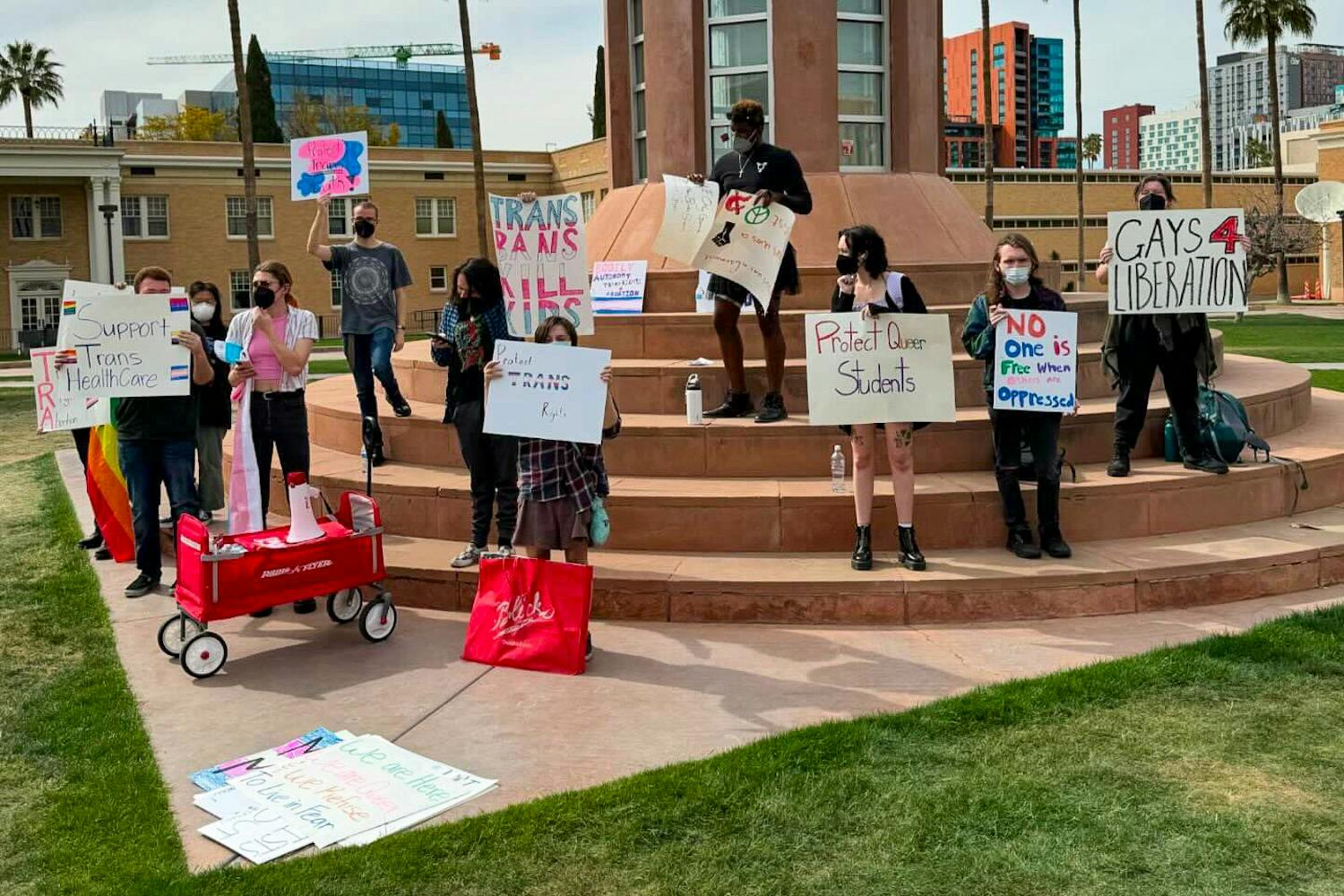College campuses are a melting pot of varying ideas, interactions and niches. But with an ever-growing pool of perspectives, some ASU political clubs say ideological tolerance is more crucial than ever to find common ground and progress conversations on issues.
The over 1000 clubs at ASU represent the diversity of ideas at the University.
Political clubs offer students the opportunity to explore new perspectives and find what their values and beliefs are. As wide as the ideological spectrum may be, leaders of political organizations here at ASU believe that tolerance is the key to maintaining an open-minded student body.
Jesse Avalos, a political science junior and president of the Young Democrats, said students should strive for ideological tolerance to set an example for lawmakers.
"We need to have tolerance because we should set the example that our leaders right now in Congress are not setting, which is making sure that we can still get along, and we can still work together to create solutions, despite our political beliefs," Avalos said.
Alexander Phillips, a global politics freshman and incoming president of the College Republicans, echoed that statement and said his club prides itself on promoting “principles of liberty and freedom.” The club builds tolerance among its members by being open to different perspectives and participating in political debate, he said.
“Everyone should be able to share their views and be given the full spotlight of public opinion," Phillips said. "It is truly one of the founding principles of this great country. When this is taken away, nothing good follows.”
But tolerance doesn't mean disagreement and healthy debates can't happen. Avalos said that debate among different groups helps because “it’ll make you reinforce your views and help you understand why you believe what you believe," or it could play a role in simply educating someone about what's "happening with the other perspective."
David Howman, a justice studies and political science senior and president of the ASU College Libertarians said that tolerance is extremely important to the club, considering that Libertarians “generally don’t get much of a voice in the political dialogue” and being open to hearing contrasting opinions means others may do the same for them.
When it comes to interacting with one another, Howman said that his experiences with speaking to opposing political clubs have always been “cordial and pleasant.”
“Even though we disagree on things, we also recognize that we’re all ASU students and we are all passionate about politics,” Howman said.
For example, the College Libertarians, College Republicans and Young Democrats banded together to tackle a University issue when the clubs wrote a column in The State Press about why they opposed the health fee increase passed by USG.
Read more: USG Tempe passes bill to increase Student Health and Wellness Fee
Howman said that he and the leaders of the College Republicans and the Young Democrats gathered on a conference call to discuss the verbiage and what ideas they did and didn’t want to include in the letter.
“It was a pretty fluid process and easy for all of us to get along,” Howman said.
Avalos said the experience was "heartwarming" because it showed that they were all able to put aside political ideologies and focus on what was affecting them as students.
As for future collaboration, Alex Baker, a business data analytics junior and vice president of the Young Democrats, said that while he hopes such issues don't arise, he would love to work with opposing political groups again if an issue that affected the entire student body came to light, such as tuition or fee increases.
Avalos said that the reason collaboration among groups is so limited is because "we all work on different schedules."
"For example, the Young Democrats are working on a lot of state-wide campaigns, others are working on local district races," he said.
Baker said that while political ideology is important, it can only have so much of an impact on daily conversations.
“At some point, it shouldn’t really matter if the person holding the door for you is Republican.” Baker said. “To segregate yourself based on political opinion just limits your social growth and opportunities to experience new things.”
Phillips said each campus political club offers a particular point of view on the political world at large and recommends students attend meetings for various clubs to form their own viewpoints.
“Go in with an open mind and think of it as a learning opportunity," Phillips said.
Reach the reporter at ajmistry@asu.edu or follow @jay_mistry52 on Twitter.
Like The State Press on Facebook and follow @statepress on Twitter.




